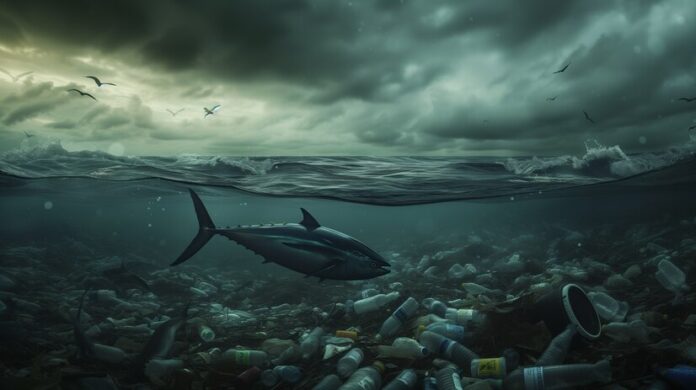Our oceans are drowning in plastic. Every year, about 8 million tons of plastic waste find their way into the world’s oceans, and the impacts are devastating. What was once considered a convenience—plastic bags, bottles, and packaging—has become a global environmental nightmare. We are now faced with the reality that this pollution is suffocating marine life, disrupting ecosystems, and making its way back to us through the food chain.
For many of us, plastic is a part of daily life—it’s in our homes, our supermarkets, and our workplaces. We buy a drink, use it, toss it in the bin, and rarely think about where it ends up. But that discarded bottle might end up floating thousands of miles away in the Pacific Ocean, becoming part of the Great Pacific Garbage Patch, a mass of plastic waste larger than the state of Texas. It’s shocking to realize that something so small can contribute to a problem so vast.
Our marine life is paying the price. Sea turtles mistake plastic bags for jellyfish, fish consume microplastics, and seabirds get entangled in discarded fishing gear. These creatures are silently suffering due to our everyday habits. Even more alarming, these microplastics are now showing up in our food, particularly seafood. The idea that plastic waste is coming back to us—on our plates—should be a wake-up call.
But it’s not all hopeless. Around the world, people are stepping up to tackle this issue. Boyan Slat’s The Ocean Cleanup project, for instance, is using technology to remove plastic waste from the ocean. Meanwhile, local communities and environmental groups organize beach cleanups, collecting tons of waste in an effort to protect our shorelines. Governments are also introducing bans on single-use plastics, and some companies are shifting toward eco-friendly alternatives.
However, the real change begins with us. By reducing our reliance on single-use plastics, supporting clean-up efforts, and advocating for better waste management, we can start to reverse the damage. The oceans have given us so much—it’s time we give back by protecting them from the pollution we’ve created. It’s not just an environmental issue; it’s a human one.




